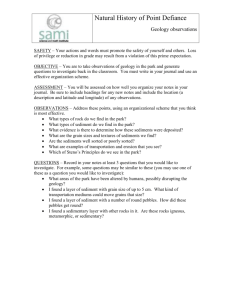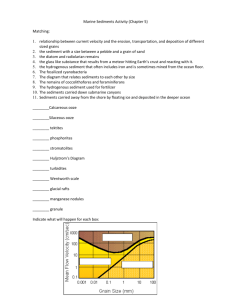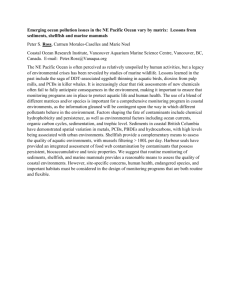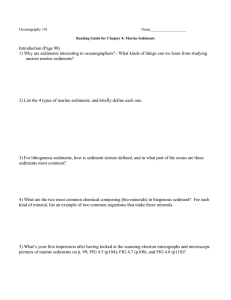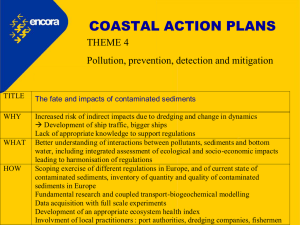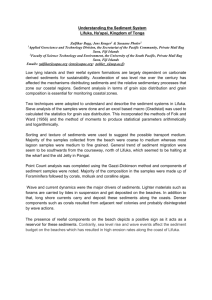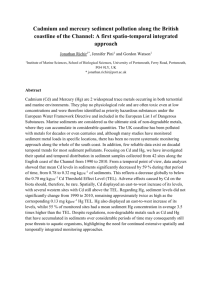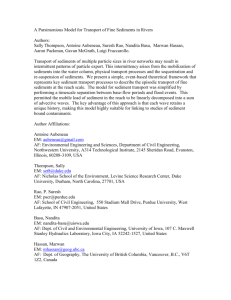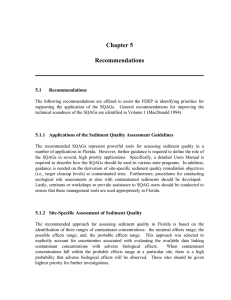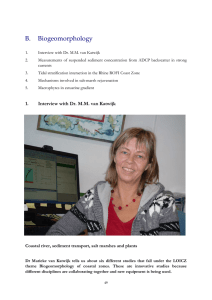GK-12 Graduate Fellows Program Sedimentologist – Coastal Geologist
advertisement
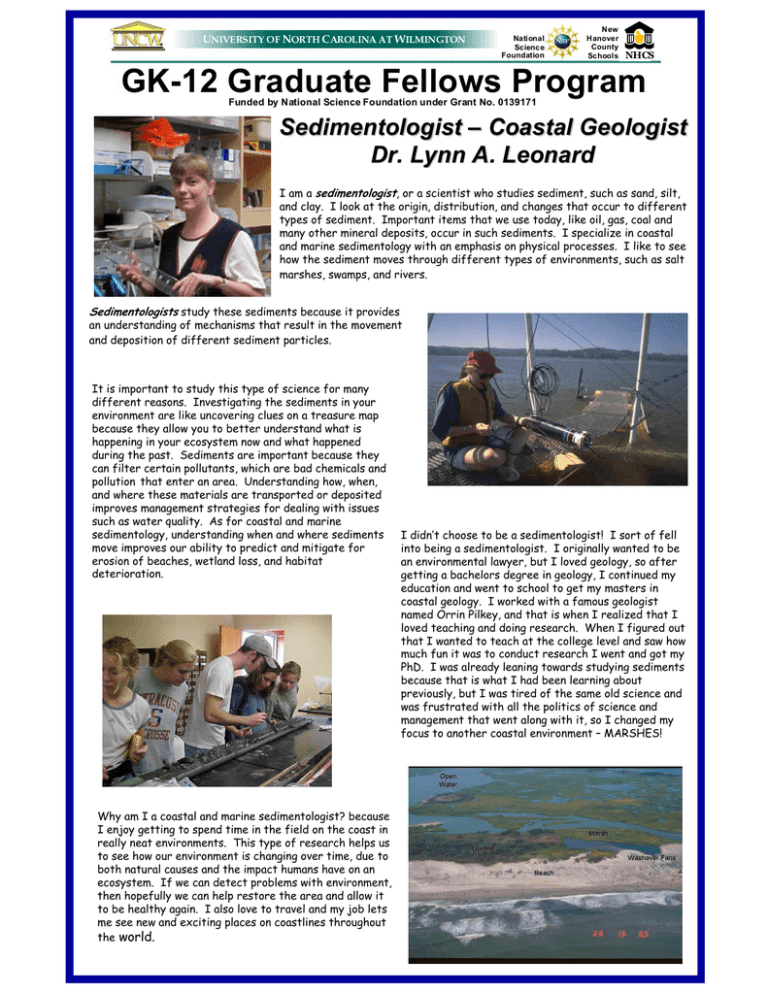
UNIVERSITY OF NORTH C AROLINA AT WILMINGTON National Science Foundation New Hanover County Schools NHCS GK-12 Graduate Fellows Program Funded by National Science Foundation under Grant No. 0139171 Sedimentologist – Coastal Geologist Dr. Lynn A. Leonard I am a sedimentologist, or a scientist who studies sediment, such as sand, silt, and clay. I look at the origin, distribution, and changes that occur to different types of sediment. Important items that we use today, like oil, gas, coal and many other mineral deposits, occur in such sediments. I specialize in coastal and marine sedimentology with an emphasis on physical processes. I like to see how the sediment moves through different types of environments, such as salt marshes, swamps, and rivers. Sedimentologists study these sediments because it provides an understanding of mechanisms that result in the movement and deposition of different sediment particles. It is important to study this type of science for many different reasons. Investigating the sediments in your environment are like uncovering clues on a treasure map because they allow you to better understand what is happening in your ecosystem now and what happened during the past. Sediments are important because they can filter certain pollutants, which are bad chemicals and pollution that enter an area. Understanding how, when, and where these materials are transported or deposited improves management strategies for dealing with issues such as water quality. As for coastal and marine sedimentology, understanding when and where sediments move improves our ability to predict and mitigate for erosion of beaches, wetland loss, and habitat deterioration. Why am I a coastal and marine sedimentologist? because I enjoy getting to spend time in the field on the coast in really neat environments. This type of research helps us to see how our environment is changing over time, due to both natural causes and the impact humans have on an ecosystem. If we can detect problems with environment, then hopefully we can help restore the area and allow it to be healthy again. I also love to travel and my job lets me see new and exciting places on coastlines throughout the world. I didn’t choose to be a sedimentologist! I sort of fell into being a sedimentologist. I originally wanted to be an environmental lawyer, but I loved geology, so after getting a bachelors degree in geology, I continued my education and went to school to get my masters in coastal geology. I worked with a famous geologist named Orrin Pilkey, and that is when I realized that I loved teaching and doing research. When I figured out that I wanted to teach at the college level and saw how much fun it was to conduct research I went and got my PhD. I was already leaning towards studying sediments because that is what I had been learning about previously, but I was tired of the same old science and was frustrated with all the politics of science and management that went along with it, so I changed my focus to another coastal environment – MARSHES!

